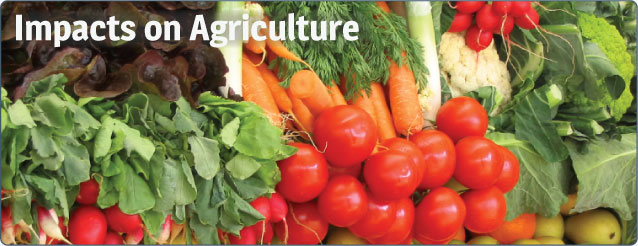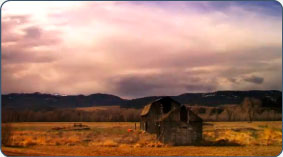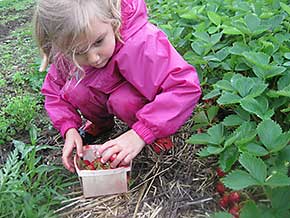
©iStockphoto.com/Marlee90
Warming to Farming
The state of Rhode Island’s agricultural sector is showing consistent improvement and growth over the past 15 to 20 years. This is a very good thing.
As one of the few economic sectors in the state with positive growth during the recent economic recession — with an increase from 858 farms in 2002 to 1219 farms in 2007 (according to the US Agricultural Census) — agriculture in Rhode Island is working hard to continue the positive trend. Currently less than 1 percent of the state’s own food is produced in
![]()
 USDA Reports Say Climate Change Will Affect Agriculture and Forests
Rhode Island, according to the Department of Environmental Management. But we also now supply all of the state’s 39 school districts with locally grown and produced foods. The state has enlisted the help of American Farmland Trust in creating a strategic plan for the future.
USDA Reports Say Climate Change Will Affect Agriculture and Forests
Rhode Island, according to the Department of Environmental Management. But we also now supply all of the state’s 39 school districts with locally grown and produced foods. The state has enlisted the help of American Farmland Trust in creating a strategic plan for the future.
Sustainable food systems mean a sustainable economy. Rhode Island officials and farmers are aware of the need of a sustainable and diverse food system to cope with problems from population growth and energy use, including the rising cost of oil. While there is an awareness of the constraints of the current system, and concern about mitigating damages from pollution while increasing local economic health, climate change will continue to accelerate for a considerable length of time despite mitigation efforts due to the lingering effects of increased greenhouse gases. This is why the intensity of our efforts to effect adaptation is critical. A secondary effect of increasing the diversity and strength of the local food system is an enhanced potential for adaptation to climate change, through food security and environmental health.

Photo Credit: O. Van Dyke
Mitigating the Damage
At a statewide level the idea of climate change is present in the discussion of the food system, but focuses mainly on mitigation rather than adaptation. There is recognition locally of the idea that enhancing the local food system will potentially reduce carbon emissions. There is concern about Rhode Island’s high electricity rates and the difficulty of farming under these high utility costs. The potential exists to address mitigation and adaptation efforts, including taking advantage of initiatives such as the Rural Energy for America Program, which offers assistance for Renewable Energy Systems & Energy Efficiency Improvements for Rural Farms and Small Businesses.
The non-profit Farm Fresh Rhode Island offers a mitigation opportunity through its year-round farmers markets, and most notably in its wintertime market that runs from November through May. Research focused on mitigation strategies is being conducted by the New England Farmers’ Union through a grant for research on carbon sequestration in New England grasslands. The ‘Buy Local’ Carbon Credit Project aims to “preserve New England’s capacity to feed and fuel itself,” by “working to make greenhouse gas offsets derived from regional growers and landowners available to utilities and other companies in New England.” More information on the program can be found at New England Farmers Union.
What do Farmers Think? (Adobe Acrobat)
“In past years, the amount of money that has had to be been spent on armaments, great and small, instead of on productive industry and agriculture and the arts, has been a disgrace to all of us in every part of the world.”
– Franklin Delano Roosevelt
News
“Tourists Are Flocking to Locations Threatened by Climate Change. That Only Makes Things Worse.” Vox
Factoids
A longer growing season could create new opportunities for farmers who take risks on new crops. However, farmers will face new challenges from insects, and increased threat of invasive weeds and insects shifting their range northward.
Dairy production is important to the Northeast's agricultural economy. Increases in temperature will likely reduce milk yields in dairy cows. In addition, without cooler nighttime temperatures, many cows would experience continued heat stress that could ultimately result in loss of animals.
Changes such as warmer temperatures and decreases in winter snowpack will have an impact on sugar maple trees in New England, potentially leading to the end of maple syrup production in the region within the next 100 years.




